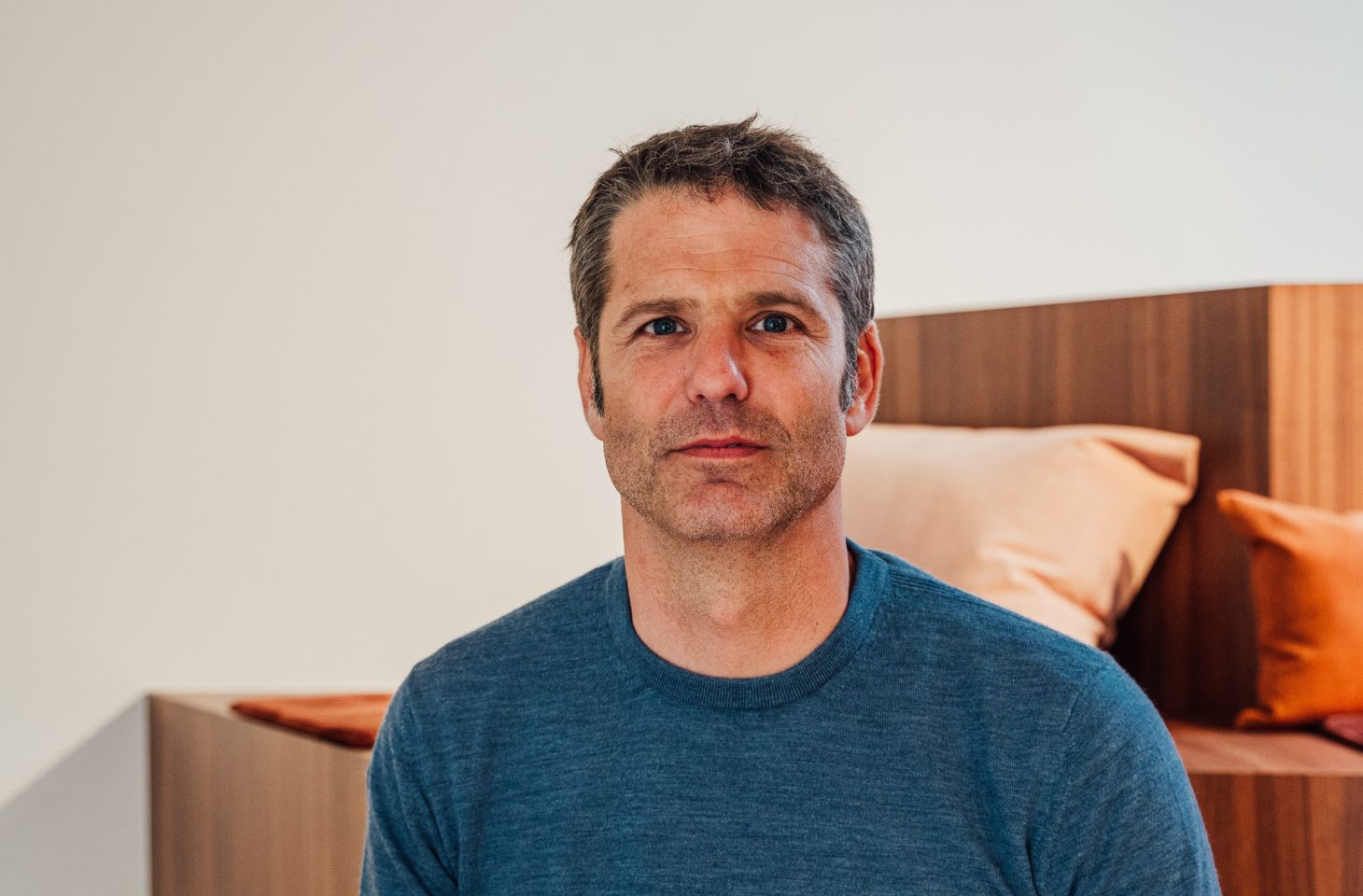How do you bring a traditional product like Belgian pralines into the digital age? Neuhaus has a modern commercial platform, now the operational part must follow. IT innovation manager Koen Lesage explains how he plans to go about it.
The Belgian praline is a cultural heritage. For more than a hundred years, Neuhaus has proudly produced pralines in all possible shapes and flavours. The order of IT Innovation Manager Koen Lesage is tasked with bringing this traditional product into the digital age. “Automation should not make our authenticity disappear.”
ITdaily: What does the IT environment you are responsible for currently look like?
Lesson: “My responsibility lies with the technology and related data that the company needs for both commercial and operational goals. I monitor everything we have now and try to determine what we should have in the future based on the organization’s vision. Our commercial activities mostly run on SaaS applications, with much of it already digitized under the influence of Covid and the customer first approach. There is some catching up to do on the production side: we are now weighing up what we should digitize and what we should not.”
“It was a conscious strategy to initially build on marketing and sales to create a strong brand. This has been very successful and in the coming years we will have to remain true to the vision and continue to grow. We have had challenging years, including Covid. Retail remains an important aspect for us.”
What are the main priorities at the moment?
Lesson: “Now we want to look primarily at the operational aspect: How can we produce more smoothly and more? There are now islands of automation and data that are not connected to each other. These islands can be very useful to check whether we are doing the right things, but now it is important to expand them and implement them across the entire organization.”
“It takes a bit of research. I try to support operations, but I’m not on the phone myself, so I don’t have that experience. With automation, you have to be able to add value. You have to remember that you’re bringing people along with you. Sometimes something you suggest doesn’t work as hoped. It’s about listening, trying, listening again, and taking small steps forward.”
Does the company understand the IT challenges sufficiently? Is everyone within the organization on the same page?
lesson: “We strive for an omnichannel experience for our customers. We can further strengthen this if we better coordinate initiatives within the organization. customer focus is of utmost importance to us, but it should not stop where marketing ends. My predecessors have already done a good job, but there is still a lot to do.”
“We are currently developing a data warehouse, but today this is mainly viewed as such Customer warehouse seen. I asked why this is not the case Company warehouse could be? To achieve this, we need to keep building to find the benefits. If we can link all the data together and apply AI to that data, we will start to see trends that we may not see yet, for example in the evolution of our customers in terms of buying behavior and preferences in products linked to external data sources like evolution of temperature.”
“When I explain it, it sounds like music to my ears, but of course you can’t do it overnight. It starts with getting structured data, looking for correlations in it and building a data architecture on top of that.”
Do you have sufficient staff and resources to successfully complete all requested work?
Lesson: “I think every IT manager wants more budget and more people. We are aware that we have to work with what we have, not what we think we will get. We are not a big player with multi-billion dollar revenue, but we are a healthy player and we want to stay that way.”
“I now believe I have sufficient skills to tackle the years ahead. It’s hard to say whether I’ll still be answering that question the same way in five years. Roles are evolving so quickly in IT. Ten years ago, nobody had a data scientist, today almost every organization has at least one, and people understand the value of the role.”
Is the future of the IT environment in the cloud, on-premises or a combination?
Lesson: “A combination: It will never be one or the other. If I lose access to the internet tomorrow for some reason, we need to be able to continue producing, even if we only have the local systems and possibly limited functionality. All production is in one location and therefore we need to protect it or be able to restore it very quickly. Therefore, we cannot afford to work ‘only in the cloud’.”
“On the other hand, we’re very seasonal. We have peak times all year round, so scalability is required. If things aren’t running smoothly during those peak times, we’re in trouble. The cloud and SaaS applications are ideal for building scalability into systems, but you also don’t want to have to pay for it when you don’t need it. It’s a trade-off between security and the ability to keep running and the ability to go as wide and heavy as we need to to keep up with our customers’ demands. That’s going to be the case for a lot of companies.”
We cannot afford to “just go to the cloud”.
Koen Lesage, IT Innovation Manager Neuhaus
What impact will upcoming regulations such as NIS2 have on IT policy and your relationship with the business?
Lesson: “We’re working on it, simply because we have to. I’m looking after security together with my infrastructure manager, who was there before me. If we want to continue to digitize the operational aspect, we also have to be aware of the risks involved. We have to make sure that we connect things in a way that we can manage the risks. It’s important to look ahead.”
How do you deal with the AI hype? How is AI integrated into daily operations?
Lesson: “I get asked the question often enough: Can’t AI solve this or that? We conduct tests to see what comes out of it. Political decisions are also made gradually. When systems are renewed, we check what capabilities are available and how they can help, but AI is not the case leading is to determine the choice. What is more important is how much overlap there is with other technologies that we may or may not want to keep.”
“We give our employees access to AI applications through corporate accounts, so it’s done in a secure way. I encourage them to play with it and evaluate every few weeks what it’s achieved and whether it’s helping them in their jobs. So we’re certainly working on it, but it doesn’t have a big impact on current policy yet.”
“AI will gain applicability in the coming years, but now we are more focused on data. What data do we have and how do we make sure it is correct? It starts with structuring data first, not just applying AI to it. This also applies, for example, to our content creation, supported by AI. This goes much further than letting AI write some generic texts, this must be done according to a Inflection who respects our branding.”
What are the main trends you are observing for the coming years?
Lesson: “My personal interest lies in the interface between manufacturing and technology. We work with an authentic product and want to preserve it, so complete automation is not an option. Our people who work with our product every day are part of this authenticity: digitalization must remain fun and challenging. One example is quality control. This is very important to us: no chocolate leaves the factory that does not meet our requirements. That simply does not happen. The control lies with the people, but can’t we support them better?
“Another trend is efficiency in production. Raw materials are becoming more and more expensive, so we need to use them more efficiently to reduce the impact of cost increases. If we can produce more of the desired quality, of course we won’t say no to that. But at what cost? It can be a problem to spend a lot of money on a solution that is not worth it Cases Are. Customer loyalty is our top priority in everything we do.”
“We definitely do not want to replace people in the production process in order to preserve our authenticity.”
Koen Lesage, IT Innovation Manager Neuhaus














